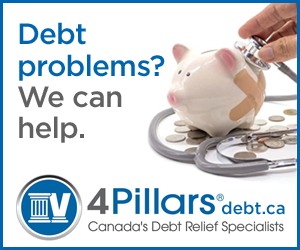Area of Law: Credit, Debt and Bankruptcy
Answer # 251
How to deal with creditors
Region: Ontario Answer # 251If you find yourself unable to keep up with your payments, or even unable to make any payments at all, you will start to receive calls from your creditors.
Often, if the situation is not resolved quickly enough, the creditor will turn to a third-party collection agency to collect the debt owed, or may start a lawsuit against you.
To prevent this from happening, there are a number of things you can do, depending on the situation and the type of creditor.
Credit Help
For easy-to-understand debt solutions, including bankruptcy, contact an experienced and compassionate agency . Get the help you need to rebuild your financial future. It’s easier than you think
Contact the creditor
If you cannot make your payments, it is best to face this fact and try to resolve the problem. Avoiding the problem will only bring you stress and make the situation worse. Tell the creditor the reasons you have not been making payments.
If the creditor is a financial institution, or a retail store, it is best to contact the person most likely in charge, such as the:
- Branch or Store Manager
- Collection Manager or Supervisor, or
- Credit Manager
If you think you can pay off the debt
If you have come up with a new payment plan that you could manage, such as paying less per month but for a longer time-period, you can try to make these arrangements directly with the creditor.
For example, if you have taken out a personal loan with a bank, you could meet with the manager, or your loans officer and discuss changing your payment plan. Before meeting with the creditor, it is best to be prepared with any documents that you need to show them, such as a list of your monthly income and expenses, and a copy of the new repayment plan that you are proposing. When speaking with the creditor:
- ask for help
- don’t make promises you can’t keep
- keep a record of who you spoke with, when, and what was said
If you cannot pay off the full debt
If you do not believe you will ever be able to repay the full debt, you can:
- ask that part of the debt be forgiven (which means you never have to pay that amount back)
- request interest relief
- request that collection agencies are not contacted
- offer a settlement amount (which means you pay less in one payment and the rest of the debt is forgiven), or
- if you cannot repay any of the debt because of medical reasons, provide proof and ask that the debt be forgiven
If your repayment plan or settlement offer is reasonable, most creditors will be cooperative because they want to recover as much of the debt as they can. If they feel that you are being dishonest, or if it seems like managing the loan will be too much trouble, they may choose to hire a collection agency to collect the debt on their behalf, or sell the debt to a collection agency at a reduced amount.
How to deal with collection agencies
If you are contacted by a collection agency, make sure they have the authority to deal with the debt before you negotiate with them. Under the Collection and Debt Settlement Services Act (Act), the collection agency is required to mail you a written notice stating:
- the name of the creditor (the person or business that says you owe them money),
- the amount the creditor says you owe, and
- the name of the collection agency and proof of its authority to demand payment on behalf of the creditor.
After sending the notice, the agency must wait six days before it can contact you.
If you are still unable to pay off the debt, you can attempt to negotiate different payment terms with the collection agency. When dealing with collection agencies, be sure to keep a written record of every time you are contacted and include:
- the name and telephone number of the person calling and the Agency they work for,
- the date and time of each call,
- the specific debt they are calling about, and
- the details of what is discussed, such as repayment terms or settlement offers.
If a collection agency is harassing you, or for information on what a collection agency is legally allowed to do, refer to 252 Collection agencies.
Making an agreement
Regardless of whether you are contacted by the original creditor or a collection agency, it is very important that you:
- put any offers made by either party, such as payment terms or settlement offers, in writing as proof of the negotiation terms;
- put the final agreement in writing and make sure it is signed by you and the collection agency or creditor before you make any payments, and
- when you do make payments, never pay in cash. Always have proof of the payment, such as a cancelled cheque.
Get help
A criminal record will affect your ability to get a loan, a mortgage, or a job. To erase your criminal record, learn more at Pardon Partners. It’s easier than you think.
There are many options to consider when you are in a situation of financial difficulty. For help dealing with creditors, and easy-to-understand debt solutions on your terms, contact our preferred experts 4Pillars and rebuild your financial future. With 60 locations across Canada, they will help you design a debt repayment plan and guide you with compassionate advice. No judgment. For help, visit 4Pillars or call toll-free 1-844-888-0442 .
You now have options:






